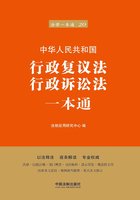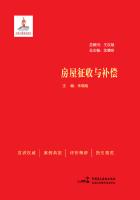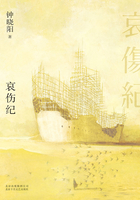Greater differences than there ought to be sometimes arise betweenfathers and sons, on the part either of fathers who will be of opinionthat the legislator should enact that they may, if they wish, lawfullyrenounce their son by the proclamation of a herald in the face ofthe world, or of sons who think that they should be allowed toindict their fathers on the charge of imbecility when they aredisabled by disease or old age. These things only happen, as amatter of fact, where the natures of men are utterly bad; for whereonly half is bad, as, for example, if the father be not bad, but theson be bad, or conversely, no great calamity is the result of suchan amount of hatred as this. In another state, a son disowned by hisfather would not of necessity cease to be a citizen, but in our state,of which these are to be the laws, the disinherited must necessarilyemigrate into another country, for no addition can be made even of asingle family to the 5040 households; and, therefore, he whodeserves to suffer these things must be renounced not only by hisfather, who is a single person, but by the whole family, and what isdone in these cases must be regulated by some such law as thefollowing:-He who in the sad disorder of his soul has a mind, justlyor unjustly, to expel from his family a son whom he has begotten andbrought up, shall not lightly or at once execute his purpose; butfirst of all he shall collect together his own kinsmen extending tocousins, and in like manner his son"s kinsmen by the mother"s side,and in their presence he shall accuse his son, setting forth that hedeserves at the hands of them all to be dismissed from the family; andthe son shall be allowed to address them in a similar manner, and showthat he does not deserve to suffer any of these things. And if thefather persuades them, and obtains the suffrages of more than halfof his kindred, exclusive of the father and mother and the offenderhimself-I say, if he obtains more than half the suffrages of all theother grown-up members of the family, of both sexes, the fathershall be permitted to put away his son, but not otherwise. And ifany other citizen is willing to adopt the son who is put away, nolaw shall hinder him; for the characters of young men are subject tomany changes in the course of their lives. And if he has been putaway, and in a period of ten years no one is willing to adopt him, letthose who have the care of the superabundant population which issent out into colonies, see to him, in order that he may be suitablyprovided for in the colony. And if disease or age or harshness oftemper, or all these together, makes a man to be more out of hismind than the rest of the world are-but this is not observable, exceptto those who live with him-and he, being master of his property, isthe ruin of the house, and his son doubts and hesitates aboutindicting his father for insanity, let the law in that case or, thathe shall first of all go to the eldest guardians of the law and tellthem of his father"s misfortune, and they shall duly look into thematter, and take counsel as to whether he shall indict him or not. Andif they advise him to proceed, they shall be both his witnesses andhis advocates; and if the father is cast, he shall henceforth beincapable of ordering the least particular of his life; let him beas a child dwelling in the house for the remainder of his days. And ifa man and his wife have an unfortunate incompatibility of temper,ten of the guardians of the law, who are impartial, and ten of thewomen who regulate marriages, shall look to the matter, and if theyare able to reconcile them they shall be formally reconciled; but iftheir souls are too much tossed with passion, they shall endeavourto find other partners. Now they are not likely to have very gentletempers; and, therefore, we must endeavour to associate with themdeeper and softer natures. Those who have no children, or only afew, at the time of their separation, should choose their new partnerswith a view to the procreation of children; but those who have asufficient number of children should separate and marry again in orderthat they may have some one to grow old with and that the pair maytake care of one another in age. If a woman dies, leaving children,male or female, the law will advise rather than compel the husbandto bring up the children without introducing into the house astepmother. But if he have no children, then he shall be compelledto marry until he has begotten a sufficient number of sons to hisfamily and to the state. And if a man dies leaving a sufficient numberof children, the mother of his children shall remain with them andbring, them up. But if she appears to be too young to livevirtuously without a husband, let her relations communicate with thewomen who superintend marriage, and let both together do what theythink best in these matters; if there is a lack of children, let thechoice be made with a view to having them; two children, one of eithersex, shall be deemed sufficient in the eye of the law. When a child isadmitted to be the offspring of certain parents and is acknowledged bythem, but there is need of a decision as to which parent the childis to follow-in case a female slave have intercourse with a maleslave, or with a freeman or freedman, the offspring shall alwaysbelong to the master of the female slave. Again, if a free womanhave intercourse with a male slave, the offspring shall belong tothe master of the slave; but if a child be born either of a slave byher master, or of his mistress by a slave-and this be provenceoffspring of the woman and its father shall be sent away by thewomen who superintend marriage into another country, and the guardiansof the law shall send away the offspring of the man and its mother.
同类推荐
法国行政法
本手册阐述一般行政法。它概要地阐述了法国大革命至今法国行政与行政法的历史沿革,是行政与行政法的学习者和研究者入门必读的著作。本书的第一部分涉及单方面行政规章和契约,叙述了行政权力的职能和合法性原则。第二部分研究行政组织,即行政组织的一秀原则(中央集权—地方分权),行政系统产生的问题,对国家行政机构和地方行政机构的叙述。第三部分分析行政活动(行政治理,公共服务),以及这些活动的后果,即行政责任。行政诉讼(行政司法及其权能、行为)是本书第四部分的内容。本书非常适于大学法律专业的学生和行政机构竞争考试的应试者阅读。它同样有益于希望了解行政法基础的人。厦门大学法律评论(第二十三辑)
本辑是厦门大学法律评论系列丛书的第二十三辑。本辑包括学术专论、学术评论、检察官来稿、学术译作等部分。全书包含法理学、宪法学、民商经济法学、婚姻家庭法、人权法、诉讼程序法等法学具体学科的研究型论文。被误读的信托——信托法原论
本书从比较法的角度探讨了英美国家的信托制度在我国的法律、社会及文化环境下应该有的生命力。本书不仅从理论上探讨信托法的原理,更从实务角度分析了信托的运作以及可能产生的纠纷及其解决办法,既介绍了英美国家的案例,也分析了我国现有的有关信托纠纷的案例,尤其提供了信托文件的文本,并详细分析其重要条款,给信托司法介入提供了便利。本书另一个重要特点是通过生活中的实例分析了民事信托在我国民众生活中的重要性、必要性、可操作性及其可能实施的广阔空间,鲜明地提出和反复论证了民事信托就是商事信托的基础、商事信托的原则大都是从民事信托原则发展起来的观点。行政复议法、行政诉讼法一本通(第六版)
“法律一本通”系列丛书自2005年出版以来,以其科学的体系、实用的内容,深受广大读者的喜爱。2007年、2009年、2011年、2014年,2021年我们对其进行了五次改版,丰富了其内容,增强了其实用性,再次博得了广大读者的赞誉。
热门推荐
哀伤纪
我想着你说过的话,仿佛看见我们的往事,经过回忆的渲染和幻想的铺排,一如水中之月碎而且多,充满了整个水面。我把手探入水里捞寻,开始明白美丽的世界,永远只可存在于心中,如今我已失去我的玫瑰色的世界。二十年没有多长,不够我们脱胎换骨,只够我们世故些、困顿些、幻灭些。原来人永远有更低的低处可去……《哀伤纪》分为“哀歌”和“哀伤书”两部分,作品缘起于一段无疾而终的感情。一九八六年一位少女孤身到美国旧金山读书,认识一对打鱼伙伴,三人成为好友。在爱情与友情之间发展着,因为海洋,因为年纪,因为签证,少女匆忙离开美国,一段感情也就此失落。二〇一四年,少女和以海为梦的男子们经历种种人生起伏、生活的错失和亲友的亡故。时光过去,迈入中年的他们辗转浮世,三个人的命运再次交错,书写一出“哀伤书”。钟晓阳说:“哀这个字在字典中,除了悲伤的意思,还包含了爱、怜悯、同情、珍惜。至于伤,那是人生更深层的东西,哀则是人生的基调。”与早年作品相比,作者不再执着于“一生只爱一个人”的浪漫,始于梦幻,落脚到现实;写爱情,也是为人生做注脚。文字更为凝练、克制,火候恰到好处。















